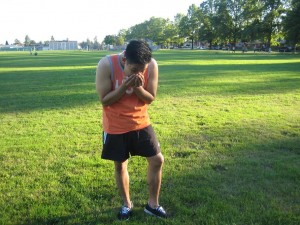Most of the toothpaste allergy reactions involve contact dermatitis of the mouth. The indications of contact dermatitis include swollen gums, mouth sores, irritated tongue and itchiness as well as peeling of the lips and skin surrounding the mouth.
Remember that toothpaste allergy is considered rare. This is due to the fact that the toothpaste is rinsed out of the mouth after brushing the teeth. There are various components in toothpastes that can trigger reactions and the most common is cinnamic aldehyde as well as certain flavorings.
Contact dermatitis of the mouth can also be triggered by other dental and oral products including metals from dental work, chewing gums, mouth washes, foods such as cashew and mangoes as well as lip balms or lipsticks. The metals used in dentistry are also capable of triggering reactions in the mouth such as nickel, chromium, mercury, beryllium, cobalt and palladium.

Diagnosis
The diagnosis of toothpaste allergy is made using a patch test that involves the application of various chemicals on the back for about 48 hours. This is usually done using a paper tape system. The results of the test are interpreted after placement and again at 72 hours after.
A positive test is confirmed if there are blisters, mild swelling and redness at the site where the chemical was placed. The test site is usually itchy but the reaction size is localized to the area of contact and usually small in size.
Treatment
The ideal way to manage toothpaste allergy is to avoid the trigger chemical. The management of the immediate symptoms might involve a low-strength topical steroid that is applied on the affected skin on the face for a short span of time. Prolonged use of topical steroids on the face must be avoided since it can lead to severe and lasting side effects.
The sores in the mouth, tongue irritation and swollen gums can be treated using systemic corticosteroids or a topical steroid mouthwash. Many individuals with toothpaste allergy can usually tolerate natural products.
